15 Travel Habits That Help You Stay Fit and Lose Weight on the Go

Traveling, whether for work or pleasure, can interrupt your daily life and majorly derail your diet and fitness routine. However, it doesn't have to, says one expert. Jamie Maitland, certified holistic nutritionist, elite fitness trainer, creator of the 21 Day Reset, and founder of The Office Health, explains that you can achieve your weight loss goals while on the go. "Traveling, as we all know, can throw a curveball into your normal routine, but only if you let it," she says. "Learn to adapt and keep these tips in mind to help keep you on track no matter where you are." Here are 15 travel habits that help you stay fit and lose weight on the go.
Select Your Hotel Carefully
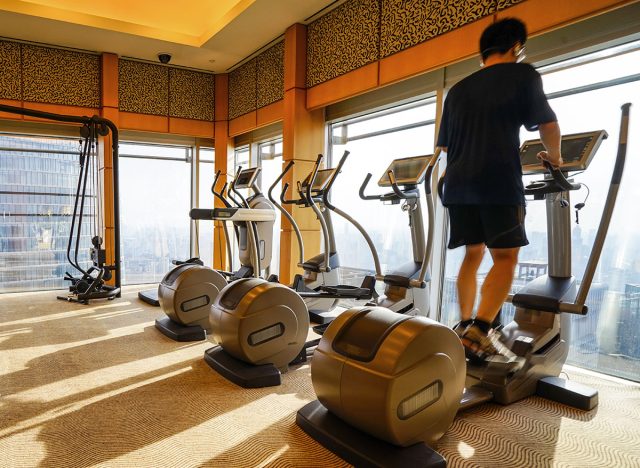
When booking a place to stay, take your fitness goals into consideration. "Choose a hotel that has a gym," suggests Maitland. You can also check ahead whether your room has a mini fridge, so you can bring meals or healthy snacks with you.
Do Restaurant Research

Because traveling usually involves dining out, do some restaurant research ahead of time. "Google local healthy restaurants in the area so you have a plan when you have to eat out," says Maitland.
Do Workouts in Your Room
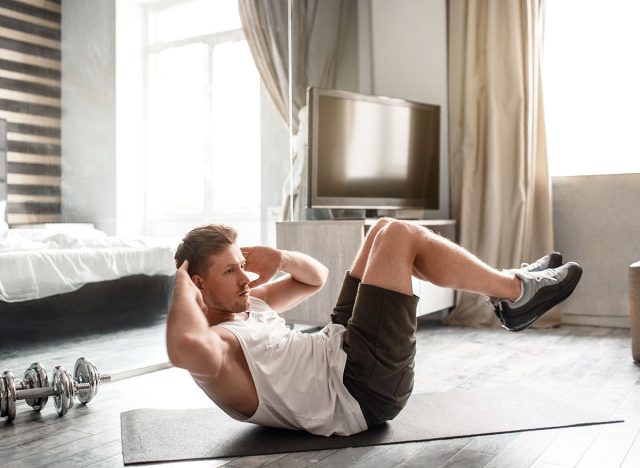
In the age of Instagram and YouTube, it's pretty easy to find hotel workouts that require zero equipment. "It's 2024, we have the internet at our finger tips, YouTube a quick 12 minute workout before you go about your day," Maitland says.
Bring a Resistance Band
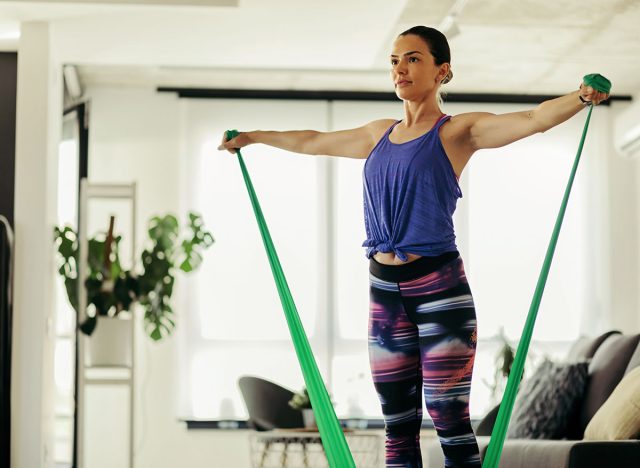
While you can't exactly travel with weights, you can bring compact exercise tools. "Bring a resistance band," Maitland recommends. "I always have at least one band with me anywhere I travel. It's light, versatile, and extremely effective when used correctly."
RELATED: #1 Secret Revealed for Sticking to Your Workout Routine
Do a Micro Workout
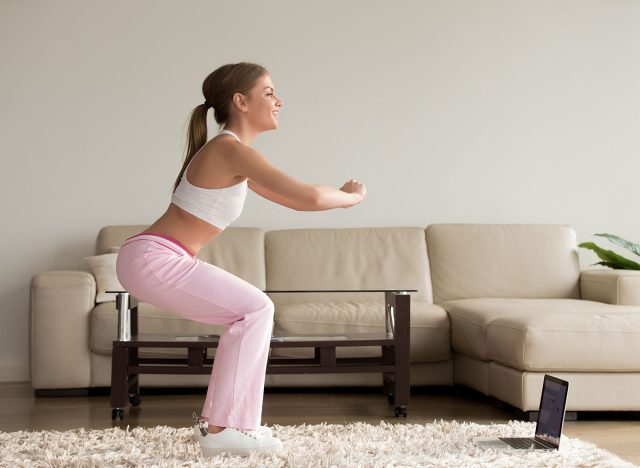
Even if you don't have access to the Internet, you can still do some exercises on your own. "Don't underestimate the power of a good micro workout on the floor of your hotel room!" says Maitland.
Hydrate

Hydration is always important, but even more so while traveling as your body is often thrown off balance. "Drink your water," Maitland recommends. "This will help you to feel full and improve your digestion."
Bring Protein-Packed Snacks
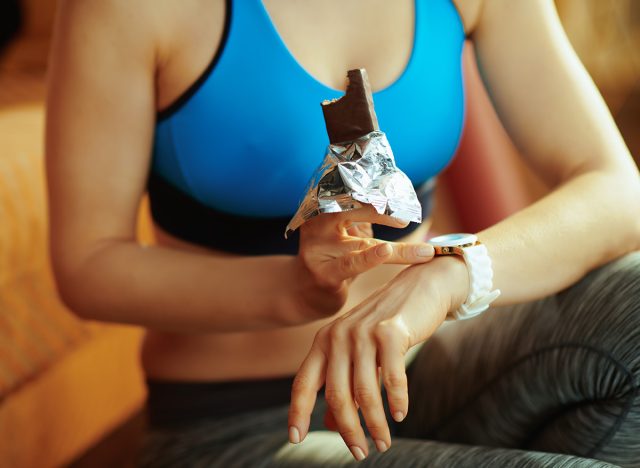
"Travel with your favorite snacks such as to-go protein," Maitland recommends. "This is very convenient, especially when you're on the go. Not to mention, a very easy way to get in 25 grams of clean protein."
Look for Calorie Burning Activities

Don't forget to stay active. "Scope out the area you're visiting and see what parks or gardens they may have and go enjoy some sun and nature," says Maitland.
RELATED: 5 Easy Ways to Lose 2 Pounds a Week
Get Your Steps In

Traveling to new places is a great opportunity to explore on foot. "Walk as much as you can. You don't always need to rely on an Uber if your legs work just fine; get moving," says Maitland.
Take the Stairs
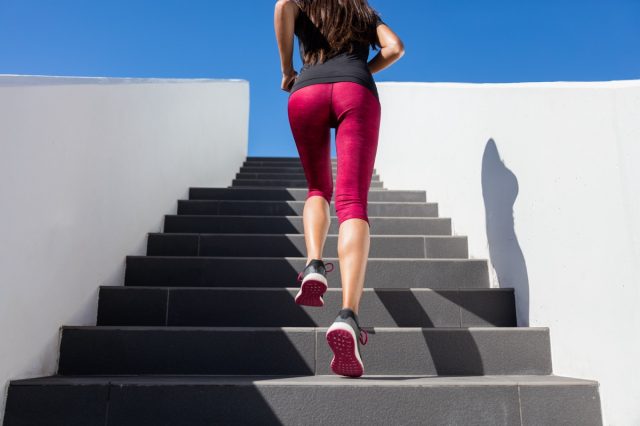
If you need to slip in an extra workout, avoid the elevator. "Utilize the stairs in your hotel," suggests Maitland. "They make for an excellent cardio workout."
Swim
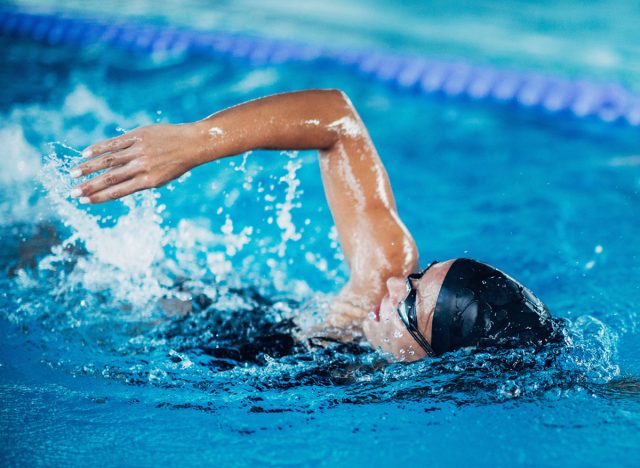
Swimming is another great workout while traveling. "If your hotel happens to have a pool, that's another good way to get in some cardio," says Maitland. Swimming is a good way to get regular aerobic physical activity, according to the CDC. Just two and a half hours per week of aerobic physical activity, such as swimming, bicycling, or running, can decrease the risk of chronic illnesses. In addition to the many physical benefits, there are multiple studies supporting the mental health benefits of swimming as well.
Take a Class
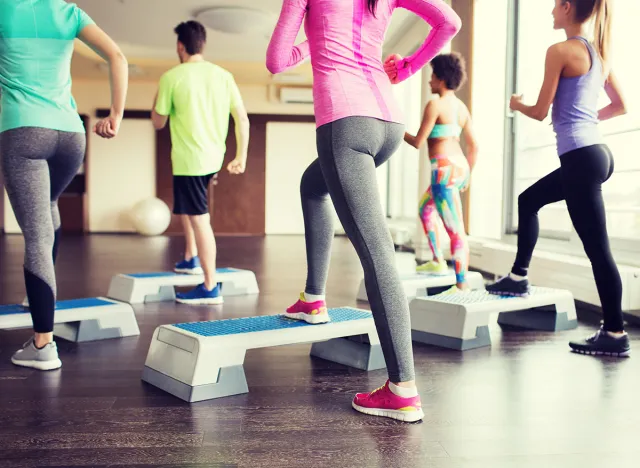
Many hotels and resorts offer daily fitness classes. If not, use your smartphone to find local fitness studios to find one nearby, Maitland recommends.
Walk the Airport

Just like some people walk the mall, the airport offers a great opportunity to get your steps in. "If you happen to be delayed at the airport, don't be shy to take a few laps around the airport just to keep your body moving," says Maitland.
Intermittent Fasting
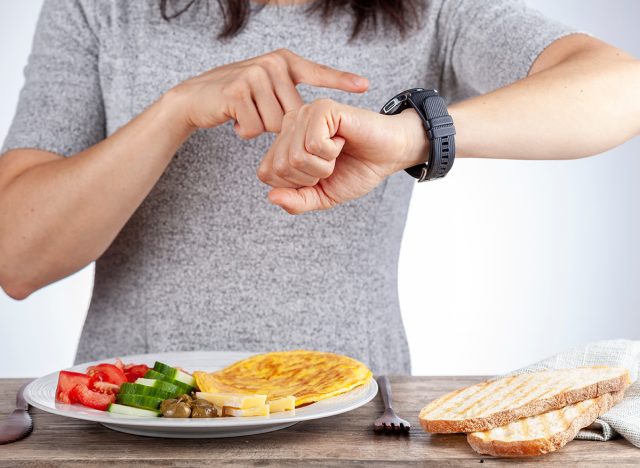
Even if you aren't a regular intermittent faster, traveling can be an easy time to try time restricted eating. "Practice fasting when you aren't able to find good quality food," says Maitland.
RELATED: 15 Quick Ways to Lose Body Fat Percentage in a Week
Sleep Well

Finally, try to get the ample rest your body needs to recharge. "Get a good night's sleep," Maitland urges. What are the health benefits of sleep? According to the Sleep Foundation, getting enough z's is a mood booster, promotes heart health, regulates blood sugar, improves mental function, restores your immune system, helps relieve stress, and aids in weight loss.
💪🔥Body Booster: Pack a resistance band when traveling to maintain your workout routine. It's lightweight, versatile, and effective when used properly.




